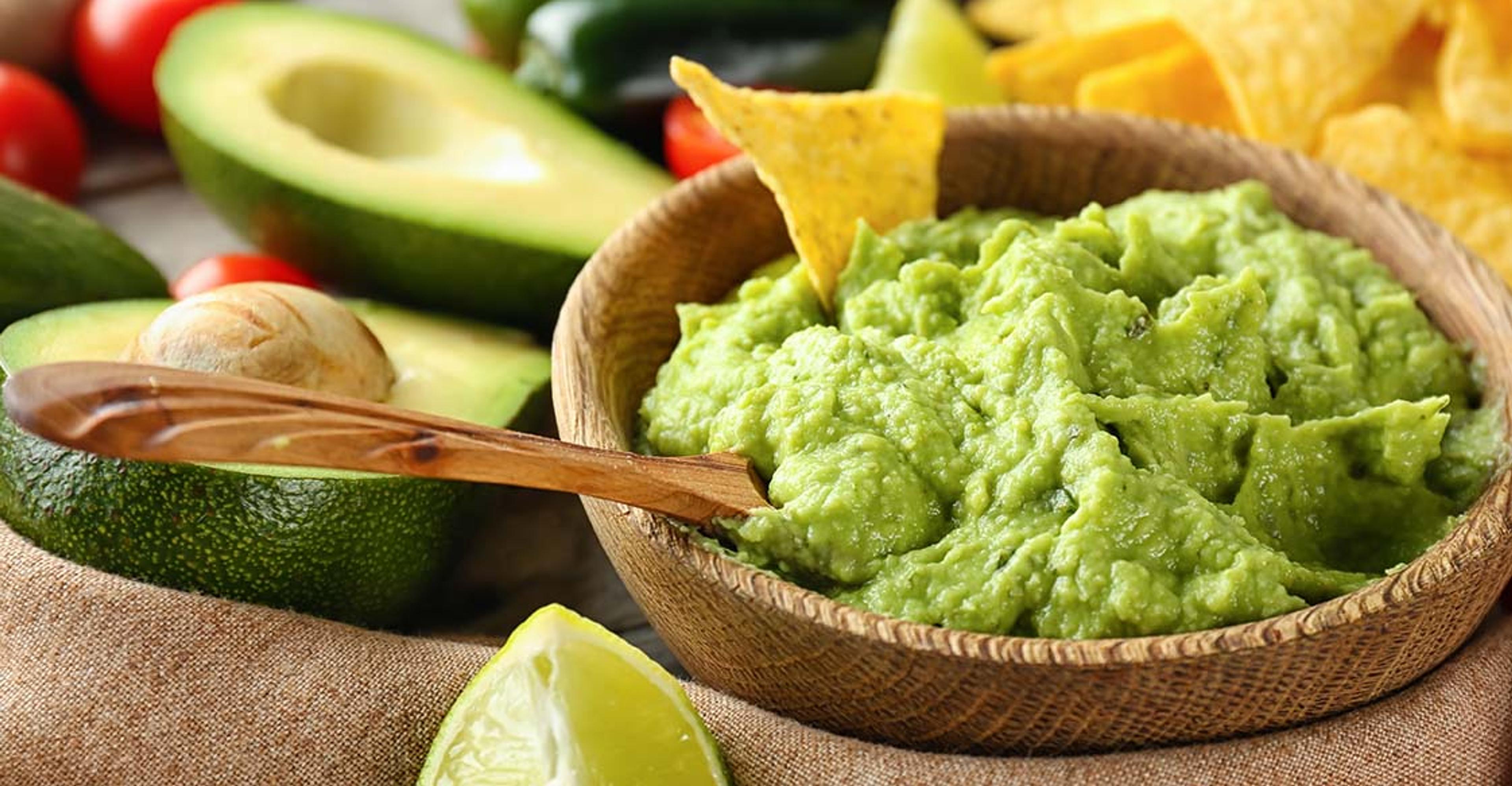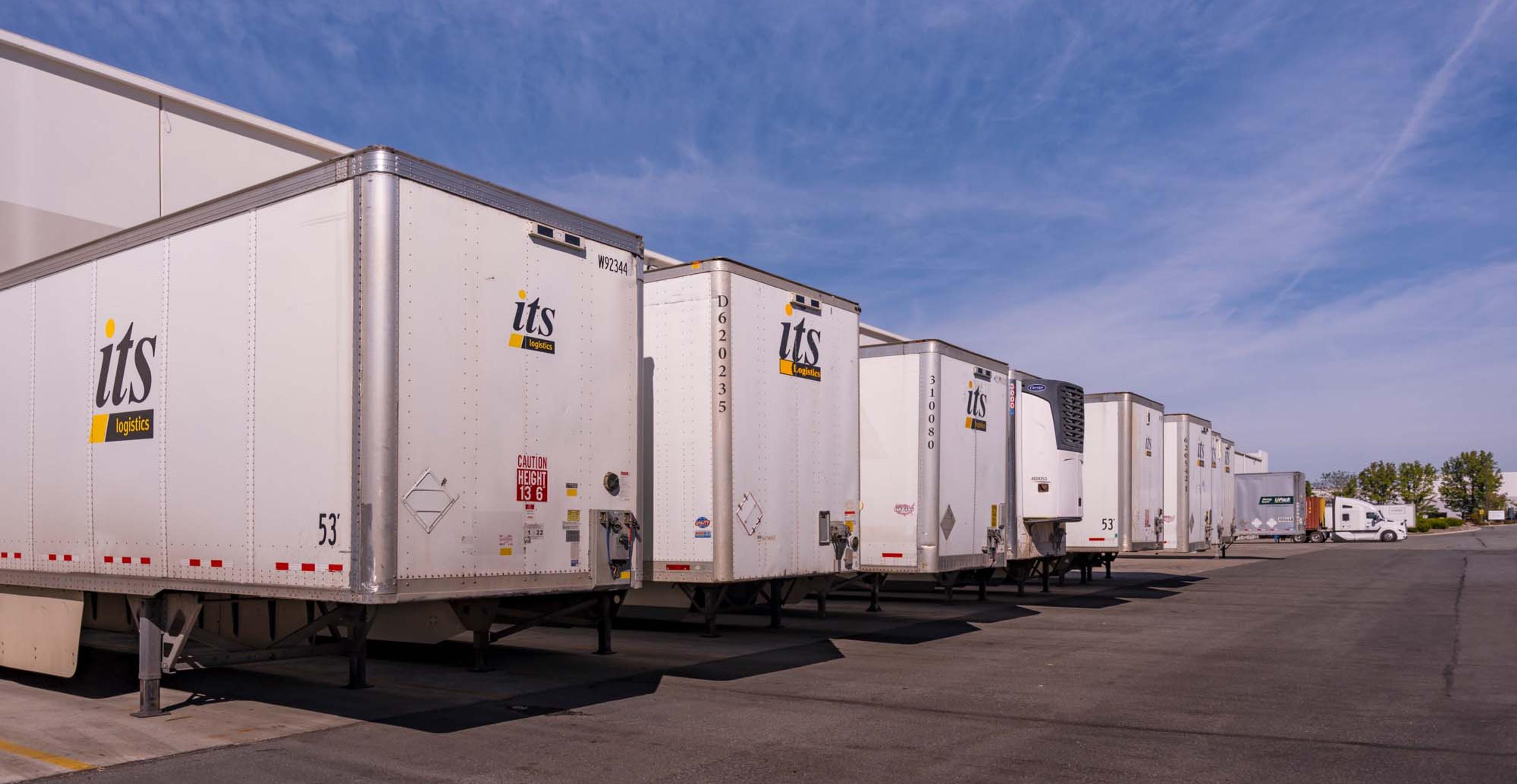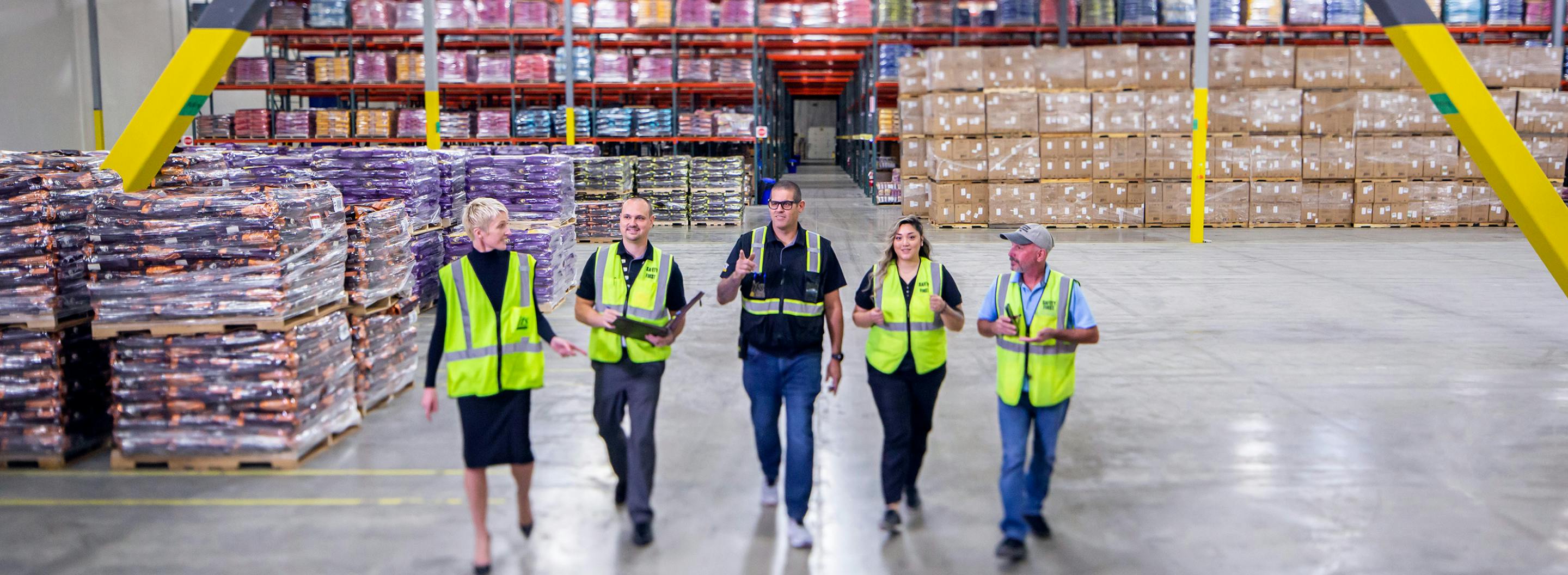
Produce seasons are a time of excitement for farmers, markets, and customers, but they also present unique challenges that require strategic planning and specialized logistics solutions. Transporting temperature-sensitive fresh produce like avocados and apples requires specialized planning and equipment, particularly during peak seasons when demand for reefer trailers soars and capacity tightens.
Understanding Peak Produce Seasons
Timing is everything when transporting perishable goods. Different regions experience seasonal booms that impact logistics networks, often turning headhauls into backhauls and straining capacity.
Seasonal Surges in Key Regions
Washington, the largest U.S. producer of apples, sees peak activity from September to October. In September 2024, the Pacific Northwest accounted for 22% of reefer truckload volumes, per data from the USDA reported by DAT.
Due to their short shelf life, perishable products like apples and lettuce require fast and efficient transportation. Any delay or mishandling can lead to spoilage, making speed and consistency essential during produce transportation.
Seasonal produce surges put immense pressure on logistics networks. Shippers must secure specialized reefer trailers, adhere to tight timelines, and ensure product quality throughout transit. As the volume of produce spikes, so does the demand for these temperature-controlled trailers, leading to increased competition for equipment.
However, seasonal produce surges can also work to a shipper's advantage, turning what were once headhauls into backhauls. While it might not be desirable for a carrier to run a load to the Pacific Northwest in the summer, it becomes advantageous during apple season, as they know they can easily find a load to carry back. This can give shippers more negotiating power when it comes to rate.
A short list of produce seasons:
- Florida produce season (April 1 – July 4) - Produce in central Florida, such as citrus, tomatoes, and bell peppers, gradually moves towards Georgia. This season has a severe impact on capacity in the southeast. Prices for reefer and dry van are typically cheap inbound but are expensive outbound.
- South Texas onion season (May 1 – June 30) – Often results in a severe capacity shortage. Rates are typically cheaper to send trucks into Texas and expensive to send them out.
- Southern California produce season (May 26 – June 30) – Typically produces a milder impact on capacity but drops rates for inbound trucks. Top crops from this region typically include lettuce, broccoli, berries, melons, and avocados.
- Washington apple season (September 1 – October 31) – Has a severe impact on capacity through Halloween and drops rates for inbound trucking.
- Pacific Northwest Christmas tree season (November 1 – December 31) – Has a severe impact on capacity in the Pacific Northwest and drops rates for inbound trucking.
The Super Bowl Effect
Similar demand spikes occur with other seasonal produce, such as avocados. Mexico’s harvest hits a heavy peak from April to July and can go well into October. Most of these shipments pass through the Texas cities of Laredo and Pharr and require efficient, temperature-controlled transport to maintain freshness.
While winter may typically be a slow season for avocados, the Super Bowl changes everything. During this one week, avocado imports soar and shipments can increase dramatically—a trend ITS witnessed firsthand with a 75% surge in West Pak Avocado’s shipments during a recent Super Bowl week. Timely delivery is critical, with over 54 million avocados consumed during the Big Game last year alone.

Navigating Tight Capacity Markets
Peak produce seasons create bottlenecks in the market, tightening capacity and increasing competition for reefer trailers, especially true in regions such as Idaho, Oregon, Washington, and Southern Texas, where harvests lead to a surge in produce volumes. Securing temperature-controlled equipment in these regions becomes challenging as domestic markets and cross-border shipments from Mexico to Southern Texas pull on reefer capacity.
Our Approach to Seasonal Capacity Challenges
The key to overcoming seasonal capacity challenges lies in long-term carrier relationships. At ITS Logistics, we believe successful transportation during peak seasons starts long before the first load is ready. ITS builds trust and reliability into its network by partnering with carriers year-round and providing freight during periods of low demand.
When capacity tightens during peak seasons, we can rely on these established relationships to secure the necessary reefer trailers. This strategic approach ensures we are well-positioned to meet client needs, even in times of scarcity.
By keeping carriers moving during slower periods, we can count on them when demand spikes—providing better service to shippers needing their produce delivered on time and in optimal condition.
Although the market can fluctuate drastically, ITS provides consistent monthly and quarterly pricing and maintains a dedicated driver network in key shipping areas to mitigate these fluctuations in demand for certain customers. This allows produce shippers like West Pak to rely on these rates and create efficiencies in their volatile supply chain throughout the year.
“Throughout our partnership, ITS has always given us competitive rates that have really helped us grow,” said Heath Shoup, Vice President of Sales and Product Management at West Pak Avocado. “They are also always available to help us in last-minute times of need by picking up canceled loads and proactively communicating,” he added.
The Critical Role of Reefer Trailers in Produce Transport
Temperature control is essential when transporting perishable goods like apples and avocados. These fruits are susceptible to temperature fluctuations, and improper handling can cause spoilage or significantly reduce their shelf life. Reefer trailers ensure consistent temperature, humidity, and airflow to preserve freshness and prevent costly spoilage. Without these trailers, even minor temperature shifts could damage produce quality, resulting in costly losses. Reefer trailers act as a safeguard, stabilizing the internal environment and allowing shippers to avoid spoilage risks.
Additionally, ITS Logistics upholds rigorous food safety protocols for our carriers and ourselves. All reefer trailers undergo stringent cleaning and sanitization processes to meet food safety regulations, preserving the safety and integrity of the product for consumers. Certifications like HACCP and FSMA compliance ensure that ITS adheres to the highest standards for hygiene and safety.
Food Safety and Compliance: The Bigger Picture
In addition to maintaining optimal transport conditions, ensuring food safety and compliance is critical for produce transportation. ITS Logistics adheres to strict food safety standards and implements robust traceability and lot identification systems, ensuring transparency and accountability throughout the entire journey.
Hygiene and cleanliness are non-negotiable when it comes to reefer trailers. To prevent contamination, we maintain rigorous cleaning protocols and follow industry certifications, such as HACCP and FSMA, which guarantee the highest standards in food safety and compliance.
Meeting Seasonal Demand with Confidence
Transporting produce during peak seasons presents a unique set of challenges, from securing capacity to maintaining product freshness and complying with food safety standards. ITS Logistics' approach—founded on strong carrier relationships, proactive capacity management, and industry-leading expertise in temperature-controlled freight—ensures our customers can confidently navigate these complexities. Our long-standing relationships enable us to secure capacity when it's most critical, ensuring that our clients benefit from reliable, timely service even in tight markets.
Whether it's avocados, frozen goods, or other temperature-sensitive products with special handling requirements, ITS can deliver on your time and temperature-sensitive transportation needs. Ready to partner with a logistics provider that can handle your seasonal surges and spikes? Contact ITS Logistics today to learn how we can help keep your shipments safe, temperature-controlled, and on time, no matter the season.



